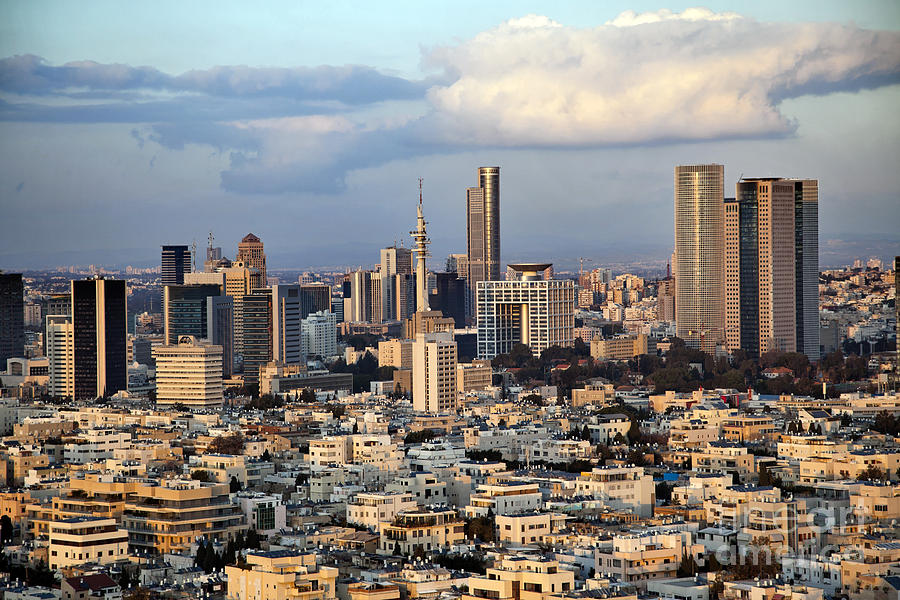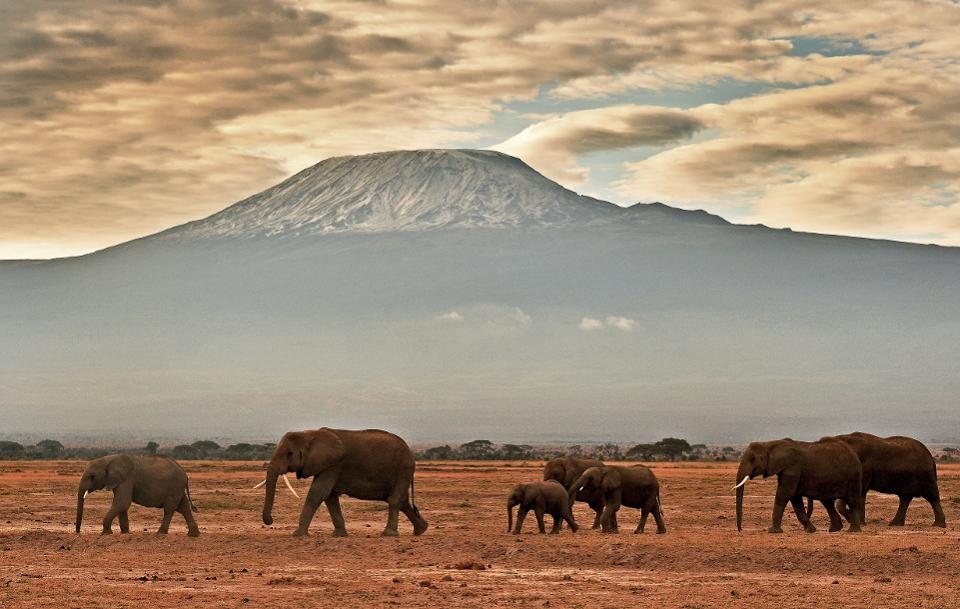NYU GPH is excited to offer the following study abroad opportunities for January term. Please note that the deadlines, noted below, are the same for all courses. Below you will also find FAQs. For further questions, please email gph.global@nyu.edu.
- GPH-GU 9325 Behavioral Communication Strategies for Global Epidemics - Kathmandu, Nepal (3 credits)
- GPH-GU 9343 HIV/AIDS Public Health Promotion - London, U.K. (3 credits)
- GPH-GU 9345 Public Health Emergency Preparedness & Response: A Global Perspective - Tel Aviv, Israel (3 credits)
- GPH-GU 9347 Tackling Global Health Disparities through Implementation Science Research - Kilimanjaro, Tanzania, (3 credits)
Frequently Asked Questions:
- Can I apply for more than one study abroad course? Yes, you may apply to as many as you like.
- When can I book my flight? Students should wait to hear from GPH administrators before booking their flight. We need a specific number of students in order to run a course.
- How do I send in my passport? Passports should be submitted via the link on the Travel Abroad page. They should be saved in a PDF or JPEG format as Last name_First name_Term_Location. Upon submission, you will receive an email letting you know that it has been submitted properly.
- When can I register for January study abroad? If you apply to a January study abroad course, are accepted, and submit your non-refundable deposit by the deadline, you will be given an access code. You may register for the course on November 13th, when Spring 2018 registration begins.
- Can this course count as part of my Spring course load? Yes. All January courses are scheduled in Spring in Albert for the purposes of financial aid. If you take a course in January, you may take a lighter load (3 courses, if you are going full-time) and it will be counted as full-time for the Spring (a minimum of 12 credits).
- What does the program fee cover? In general, a program fee covers housing, local transportation for events, and activities, but it depends on the course. Please scroll to the course you are interested in for specific details on what the fee covers.
- Does financial aid cover the program fee? Yes, though you must contact the Office of Financial Aid (212-998-4444 or financial.aid@nyu.edu) to discuss this with them; it is not automatically covered.
- Do I have to pay the deposit and the program fee? Yes, but the deposit is deducted from the total amount due for the program fee.
- Is airfare included? No, airfare is not included in the program fee or in the tuition.
- Will I need a visa? Depending on your nationality and the country you are visiting, you may need a visa. Please review the course details below for more information.
- Can I arrive early? Yes, but you are responsible for finding your own accommodations. Students must check in and check out on the listed dates per program.
- Can I travel on the weekend? Yes, if your coursework allows you the time to travel outside of your host city, but you must notify the site administrators and cgph.global@nyu.edu in advance of confirming your plans.

GPH-GU 9325 Behavioral Communication Strategies for Global Epidemics - Kathmandu, Nepal (3 credits).
Dates: January 10-18, 2018. Students arrive in Kathmandu on January 9th and depart January 19th.
Eligibility: This course is open to the following MPH concentrations: CIH, EPI, GH, and SBS. Graduate students in other NYU schools and upper-level undergraduates will be admitted on a case-by-case basis.
Program Fee: $1250, which covers housing and activities
Housing: hotels with shared doubles
Meals: breakfast and lunch included
Visas: Students will require a visa in advance of travel. Please visit the Consulate of Nepal website for more information
This is a course that CGPH runs in partnership with UNICEF. We expect 20-25 UNICEF professional field staff from countries in the South Asia and East Asia/Pacific Regions (with a few from East and West Africa) to join the class. We'll intersperse the UNICEF staff with MPH students on teams and work on programs that can be implemented immediately in UNICEF country offices. This is a rare opportunity to work closely with people that are in the field and that have 10-15 years of Global Health experience. CGPH students have translated this experience into internships, consultancies, and jobs and they have built a global network of contacts at UNICEF.
This course focuses on the integration of three public health disciplines for emergency action: epidemiology, behavioral health/intervention research, and public health communication to provide students with a knowledge base and foundation of skills to be able to design and implement strategies in disease prevention and response in outbreak situations, with a focus on the reemergence and emergence of global epidemics.
- Students will work in small groups with UNICEF field staff to develop a Communication for development strategy to an outbreak situation;
- Students will have the opportunity to contribute to innovative strategies that may be used in the field to create actual programs;
- The course will include one or more visits to sites impacted by the April 2015 earthquake

GPH-GU 9343 HIV/AIDS Public Health Promotion - London, U.K. (3 credits).
Pre-requisites: GPH-GU 2140 or 5140
Dates: January 3-16, 2018. Students arrive in London on January 2nd and depart on January 17th.
Eligibility: This course is open to the following MPH concentrations: CIH, GH, EPI, PHPM, and SBS. Graduate students in other NYU schools and upper-level undergraduates will be admitted on a case-by-case basis.
Program fee: $1900, which covers housing and activities
Housing: singles in a suite at Kings Cross/Urbanest
Meals: students are responsible for their own meals
Click here to apply
During this 2-week intersession class, students will learn about the evolution of the HIV epidemic in the U.S. and in the U.K. Cross country comparisons of these two epidemics will allow students to examine the biopsychosocial factors that have influenced HIV vulnerability, examine the application of relevant and appropriate theories to the development of HIV preventions, evaluate the effectiveness of prevention and interventions efforts, and compare how prevention and intervention efforts are implemented in these two distinct health care environments.
Additional information about NYU London may be found here.

GPH-GU 9345 Public Health Emergency Preparedness & Response: A Global Perspective - Tel Aviv, Israel (3 credits)
Pre-requisites: GPH-GU 2106 or 5106 and GPH-GU 2140 and 5140
Dates: January 3-18, 2018. Students arrive January 2nd, and depart January 18th evening or the morning of January 19th.
Eligibility: This course is open to the following MPH concentrations: CIH, ENV, EPI, GH, PHPM, and SBS. Graduate students in other NYU schools and upper-level undergraduates will be admitted on a case-by-case basis.
Program fee: $1900, which covers housing and activities
Housing: shared doubles
Meals: breakfast and some lunches are included. Dinner is not included.
Click here to apply
This course will focus on the planning and deployment of international humanitarian aid missions, preparedness and response to terrorism, public health ethical issues that arise in conflict situations, and disaster mental health and community resilience. The course will also review principles of surveillance, mitigation, preparedness, response and recovery from natural and man-made emergency events, and cover both US and international emergency management and public health frameworks. This study-abroad course will feature the following:
- Attendance at a bi-annual international scientific and provider conference, the International Healthcare Conference on Preparedness and Emergency Response to Disasters (IPRED), which draws scholars and practitioners from around the world. www.ipred.co.il
- Opportunities to meet and network with international scholars and specialists in disaster response, climate science, and humanitarian aid
- The NYU Tel Aviv campus is a modern urban campus only minutes from the Mediterranean and white sand beaches, http://www.nyu.edu/global/global-academic-centers/telaviv.html
- FEMA certification in courses ICS-100 (Incident Command) and ICS-200 (ICS for Single Resources and Initial Action Incidents), https://training.fema.gov/nims/
- Students will travel to Ben Gurion University in Beersheva, Israel to attend lectures with faculty and students from the Center for Emergency Response Research, http://in.bgu.ac.il/en/PREPARED/Pages/default.aspx
- NYU Faculty member Dr. David Abramson, director of the College of Global Public Health’s Program on Population Impact, Recovery, and Resiliency (PiR2) is a nationally-known expert in disaster science
- There will be opportunities for students to travel throughout Israel on weekends to explore historical, cultural, and religious sites.
Additional information about NYU Tel Aviv may be found here.

GPH-GU 9347 Tackling Global Health Disparities through Implementation Science Research - NYC and Kilimanjaro, Tanzania, (3 credits)
Pre-requisites: GPH-GU 2106 or 5106
Dates: January 2nd-8th in NYC; for the second part of the course, students arrive in Tanzania on January 11th and the course runs from January 12th-18th; students depart on January 19th.
Eligibility: this course is open to the following MPH concentrations: CIH, GH, EPI, SBS. Graduate students in other NYU schools and upper-level undergraduates will be admitted on a case-by-case basis.
Program fee: $1000, which covers housing in Kilimanjaro and activities
Housing: shared doubles
Meals: all meals included for the Kilimanjaro portion of the course
Visas: Travelers to Tanzania will require a visa in advance of travel. Please visit the Tanzania Embassy website for more information.
Click here to apply
Students will examine and review the epidemiology and drivers of the global burden of non-communicable diseases as well as two 'chronic' infectious diseases (tuberculosis and HIV). Students will explore solutions through an implementation science research framework. 'Real life' case studies will be used to allow students to fully grasp how to design, implement and evaluate effective interventions in low-resource settings and among vulnerable populations. The course will focus on the use of alternative research study designs as well as the potential for mobile health interventions to improve disparities in access to care through task-shifting and task-sharing among front-line health providers to reduce health disparities. This course will run for 5 days in New York City and then the students will travel to Kilimanjaro, Tanzania and take part in an experiential 'immersion' learning program with local and National health leaders and with teaching by Dr. Cheryl Healton and Dr. Yeates in rural and urban areas to better understand how the approaches they have learned about in the classroom are being implemented 'on the ground' in the local health system.